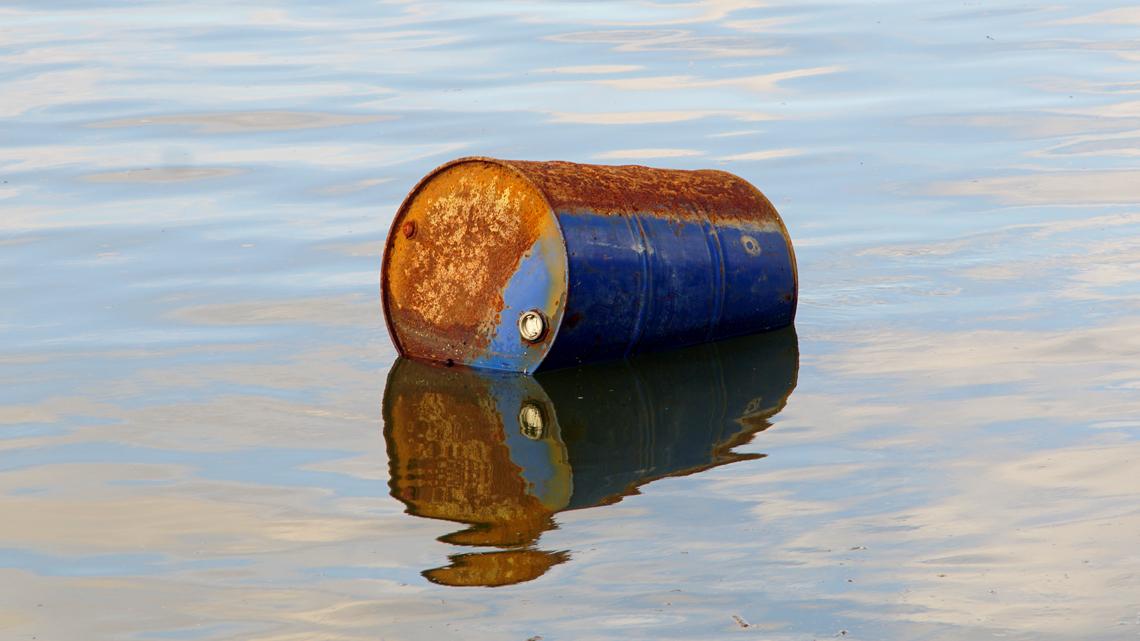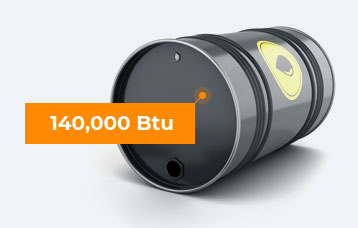The Economic and Environmental Incentives For Burning Waste Oil
Waste oil is an incredibly valuable resource! In fact, waste oil generates more energy than #2 fuel oil and has nearly twice the energy value of coal. To give you a better idea of what that means, approximately one gallon of waste oil = 18 kWh of electricity. That’s enough electricity to run the average household for around 15 hours.
One of the best ways to capture the full value of waste oil is through burning. Federal and state governments across the country have created clean energy incentives to support waste oil burning as an effective way to reuse oil. The clean energy incentives and tax credits enable businesses to capture the full energy value of used oil and minimize disposal costs and liability. Additionally, with advances in waste-oil heater technology, the process of burning waste oil is safe and more environmentally friendly.
As a used oil producer, there are many reasons why you would want to reuse waste oil onsite, including:
-
- Protecting the environment from oil spills and waste oil ground pollution
- Leveraging economic incentives for businesses, such as state and federal tax credits and state-by-state credit or loan programs
- Cutting costs and administrative hassle from waste oil disposal services
- Convenience of reusing waste oil on-site
- Reduce your risk of facing cradle-to-grave liability issues
Burning waste or used oil onsite in a waste oil heater or boiler allows you to reuse waste oil efficiently and provide heat and energy for your facility or home for free. In addition to reducing your utility and waste oil disposal costs, you can also help protect the environment and eliminate your liability for the improper disposal of hazardous materials.
The average oil spill in the United States can cost anywhere from $18 per gallon to $630 per gallon, depending on a variety of factors.1




Environmental Impacts of Waste Oil
Improper waste oil disposal can contaminate waterways, cause ground pollution, harm wildlife and people, and negatively impact local industries and businesses, among other things. Oil spills and waste oil leakages from underground waste oil drums are costly to clean up, both in actual money spent and the social costs to the surrounding communities.
The average oil spill in the United States can cost anywhere from $18 per gallon to $630 per gallon, depending on a variety of factors.1
Waste oil recycling can help prevent used oil from contaminating the environment. There are many ways to recycle and reuse waste oil onsite. For instance, burning waste oil is an environmentally friendly and cost-effective way to reuse waste oil.
Learn more about the environmental impacts of improper waste oil disposal and oil spills.
Clean Energy Incentives for
Burning Used Oil

One gallon of used oil contains about
140,000 Btu of energy – about the same heating value as new oil.
Beyond the environmental impact of waste oil spills, there are strong economic benefits to properly disposing of waste oil or reusing it onsite. More and more, states are developing clean energy incentives to encourage individuals and businesses to recycle waste oil instead of simply disposing of a still valuable used resource.
Each year, waste oil that is improperly disposed of could be used to heat over 360,000 garages according to UOMA’s estimates. In fact, a gallon of used oil has almost the same heating value as new oil.
Learn more about the economic benefits of recycling waste oil.

Technology and Safety Factors for
Used Oil Heaters and Boilers
Burning waste oil as a means of reusing waste oil onsite requires proper equipment, such as a waste oil heater or boiler. The equipment used to burn waste oil should meet standards for emissions and burning efficiency to ensure it is a sound environmental and economic investment. UOMA is committed to ensuring units produced by its members meet the safety ratings and standards for emissions set forth by two different organizations.
Learn more about the technology and safety standards in place for waste oil heaters and boilers.
1. Cohen, Mark. What are the Likely Costs of the Deepwater Horizon Spill? 2010
